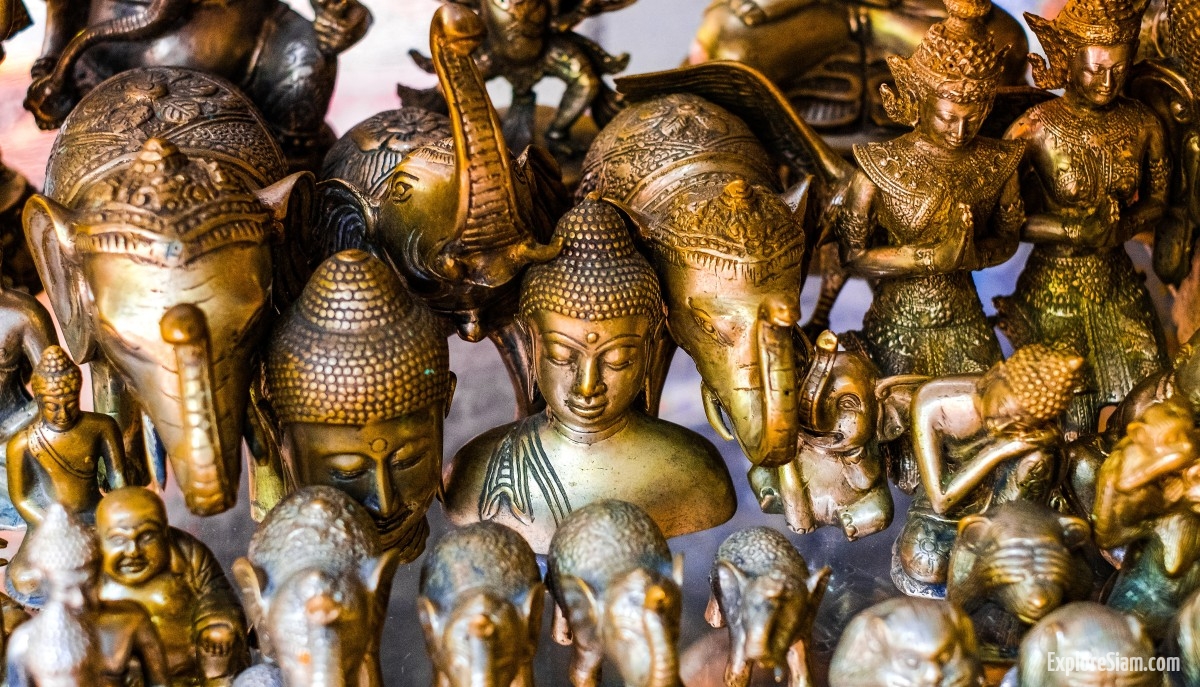Thailand, a country renowned for its vibrant culture, stunning landscapes, and welcoming people, is a top destination for travelers worldwide. As tourists immerse themselves in the rich experiences this Southeast Asian gem offers, they often wish to bring a piece of Thailand back home. However, while many souvenirs make perfect keepsakes, there are specific items that travelers should avoid due to legal, ethical, and environmental reasons. Understanding these restrictions is crucial to ensuring that your travel memories remain positive and that you respect Thailand’s cultural and natural heritage.
One of the primary concerns when choosing souvenirs in Thailand is the legality of the items. The Thai government strictly regulates the export of certain cultural artifacts and natural resources to protect the country’s heritage and biodiversity. For instance, it is illegal to take Buddha images or statues out of Thailand without proper authorization. Buddha images, especially those that are considered antique or of significant cultural value, are protected under Thai law. Travelers may find themselves in legal trouble if they attempt to export these sacred objects without the necessary permits. It’s important to respect the religious and cultural significance of these items and refrain from purchasing them unless you are certain they are legal to export.
Another category of forbidden souvenirs involves items made from endangered wildlife. Thailand is home to a diverse array of flora and fauna, some of which are threatened by illegal trade. Products made from ivory, tiger bones, and certain types of shells, such as the giant clam, are often sold in markets and tourist shops. However, purchasing and transporting these items can contribute to the decline of endangered species and are strictly regulated by international laws, such as the Convention on International Trade in Endangered Species of Wild Fauna and Flora (CITES). Violating these laws can result in severe penalties, including hefty fines and imprisonment. Travelers should avoid buying any products that seem to be made from protected wildlife to help combat the illegal wildlife trade and preserve Thailand’s natural beauty for future generations.
Apart from wildlife products, certain plant-based items are also restricted. Thailand is known for its unique flora, including orchids and specific types of wood like teak. While these may seem like beautiful and harmless souvenirs, many of these plants are protected, and their export is regulated to prevent over-harvesting and environmental degradation. Orchids, for example, require special permits to be legally exported. It’s best to enjoy Thailand’s botanical treasures in their natural habitat or through sustainable and legal means.
Cultural artifacts extend beyond religious icons and endangered species. Thailand has a rich history, and ancient artifacts, such as pottery, sculptures, and traditional tools, are often targeted by looters. The sale and export of these items are illegal as they are considered national treasures. Purchasing such artifacts not only supports illegal activities but also deprives Thailand of its cultural heritage. When buying souvenirs, it’s important to ensure they are modern reproductions rather than genuine antiques. By doing so, travelers can appreciate Thailand’s culture without contributing to the loss of its historical artifacts.
Ethical considerations also play a significant role in determining what souvenirs to avoid. Items that involve exploitation or harm, such as products made from animal parts obtained through cruel means, should be avoided. Elephant trekking and shows where animals are mistreated are common tourist attractions in Thailand, and souvenirs from these activities often involve cruelty. Opting for ethical alternatives, such as visiting sanctuaries that prioritize animal welfare, ensures that your travel choices do not contribute to animal suffering.
In addition to the legal and ethical aspects, environmental concerns are paramount. Coral reefs, shells, and certain stones may be tempting to take home as mementos, but removing these items from their natural environment can have devastating effects on ecosystems. Coral reefs, in particular, are incredibly fragile and play a crucial role in marine biodiversity. Removing pieces of coral or shells disrupts the habitat and can lead to long-term ecological damage. Travelers should resist the urge to collect natural souvenirs and instead support local artisans who create beautiful crafts without harming the environment.
Finally, travelers should be mindful of counterfeit goods. Thailand is known for its bustling markets, where a variety of items, including fake designer goods, are sold. While these may seem like a fun and inexpensive souvenir, purchasing counterfeit products is illegal and can result in fines or confiscation at customs. Moreover, the production and sale of counterfeit goods often involve unethical labor practices and contribute to the economy of crime.
In conclusion, while Thailand offers a plethora of unique and memorable souvenirs, it’s crucial to be aware of what is forbidden to bring home. Respecting the legal restrictions, ethical considerations, and environmental impact of your purchases ensures that your souvenirs do not come at the cost of Thailand’s heritage and natural beauty. By making informed and responsible choices, travelers can preserve their positive memories of Thailand and contribute to the sustainable and respectful tourism that the country deserves.





